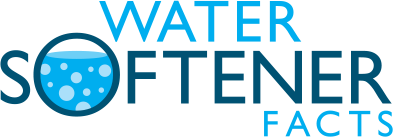About Water
What is hard water?
Water is considered hard when it contains large amounts of dissolved calcium, magnesium and other minerals. These minerals cause film formation on dishes and residue on bathroom fixtures. Hard water can also cause mineral build-up in pipes and appliances, and reduce the efficiency of heating elements in water heaters. Many people find that hard water reduces the lather of soap and shampoo during showers, and that laundry is stiffer and less vibrant.
Water hardness is measured in milligrams per litre (also referred to as parts per million or ppm) or grains per U.S. gallon (gpg) in a range of five classifications:
| Classification | Hardness range | Hardness range con’t |
|---|---|---|
| Soft | below 17 mg/litre | (0-1 grains per U.S. gallon) |
| Slightly hard | 17.1 – 60 mg/litre | (1-3.5 gpg) |
| Moderately hard | 61 – 120 mg/litre | (3.5 – 7.0 gpg) |
| Hard | 121 – 180 mg/litre | (7.0 – 10.5 gpg) |
| Very hard | over 180 mg/litre | (10.5 gpg and over) |
What about drinking water?
You can have a separate line or bypass valve installed in your home to supply unsoftened water for cooking and drinking.
Several municipalities in the Grand River Watershed rely on groundwater for their drinking water supply. The Region of Waterloo takes roughly 75 percent of its water from the ground; the City of Guelph relies primarily on groundwater for its supply. Groundwater is generally hard because it has absorbed minerals from the earth it flows through. The minerals contributing to hardness (mainly calcium and magnesium) are healthy to drink but create scale build-up in pipes, appliances, water heaters and on dishes. As a result, residents of areas with hard water often use water softeners to remove the hardness of water.
Water hardness levels in Waterloo Region and the City of Guelph vary from 148 mg/L (8.7 grains per U.S. gallon) to 958 mg/L (56 grains per gallon).
There are a few telltale signs that your tap water is hard. Tap water that contains a higher concentration of minerals will leave soap scum behind on sinks and bath tubs. Minerals in the water form scale in washing machines, dishwashers, coffee makers, kettles, humidifiers, water heaters and plumbing fixtures. Without proper maintenance, the efficiency of appliances, such as tanked water heaters, will decrease over time due to mineral or scale accumulation. Homeowners renting appliances are often required to maintain water softeners as part of their rental agreement.
You should always find out the hardness level of your water before installing and setting up a water softener. For residents of Guelph and Waterloo Region, you can check out our hardness guide to find your community’s water hardness.
The main reasons you may want to purchase a water softener are:
- to lower energy consumption by reducing scale build-up in water heaters
- to reduce the amount of soap needed to create a lather
- to maintain plumbing fixture appearance and function
- to enjoy the feel of softened water when washing
What is soft water?
Water is considered soft when most of the calcium and magnesium are removed. As shown in the classification chart above, water is considered soft when the hardness is below 17 milligrams per litre. Many water softeners will remove hardness entirely, leaving the water without mineral content. Most people prefer soft water for showers and laundry as it helps create soap lathering, but it’s not recommended for drinking, cooking or watering plants. Homeowners can install a bypass that provides unsoftened water for drinking, cooking and outdoor use.
Read our FAQ about softened water and health
Surface water, such as water taken from lakes and rivers, is naturally soft because it isn’t filtered through mineral-rich bedrock layers like hard water is. Naturally soft water usually has lower levels of sodium than water from ion exchange water softeners.
Did you know:
